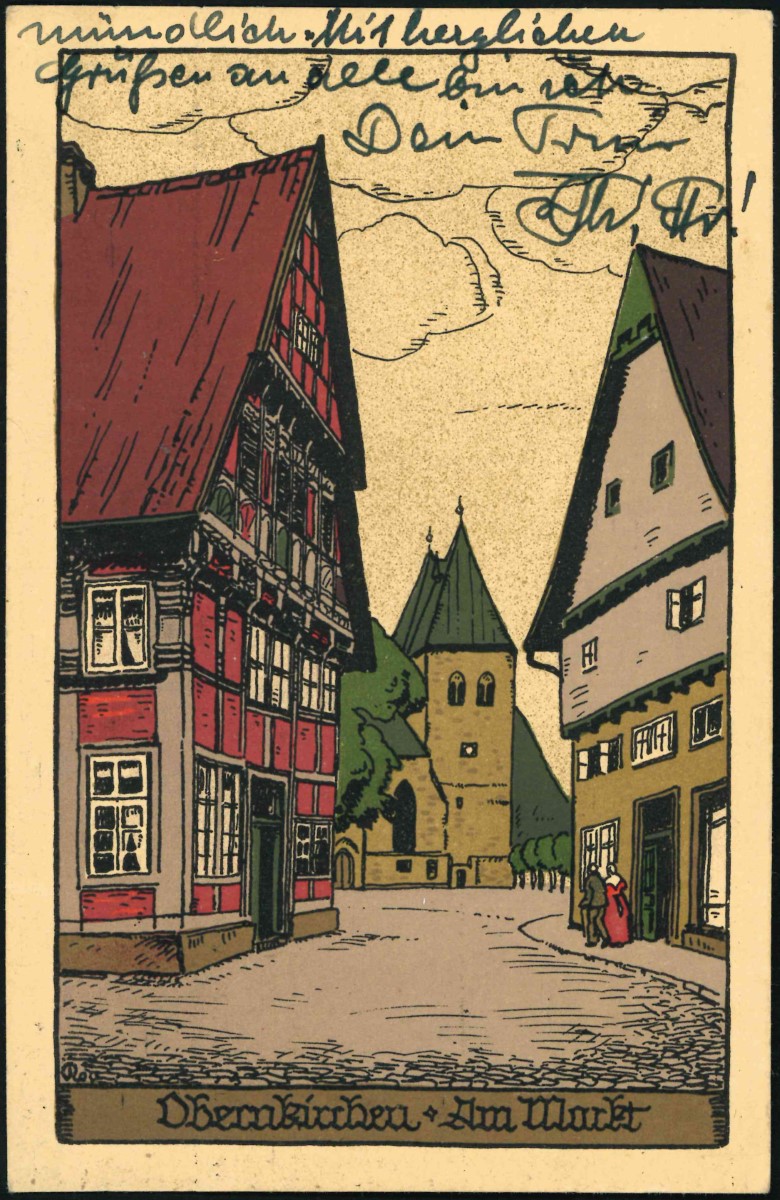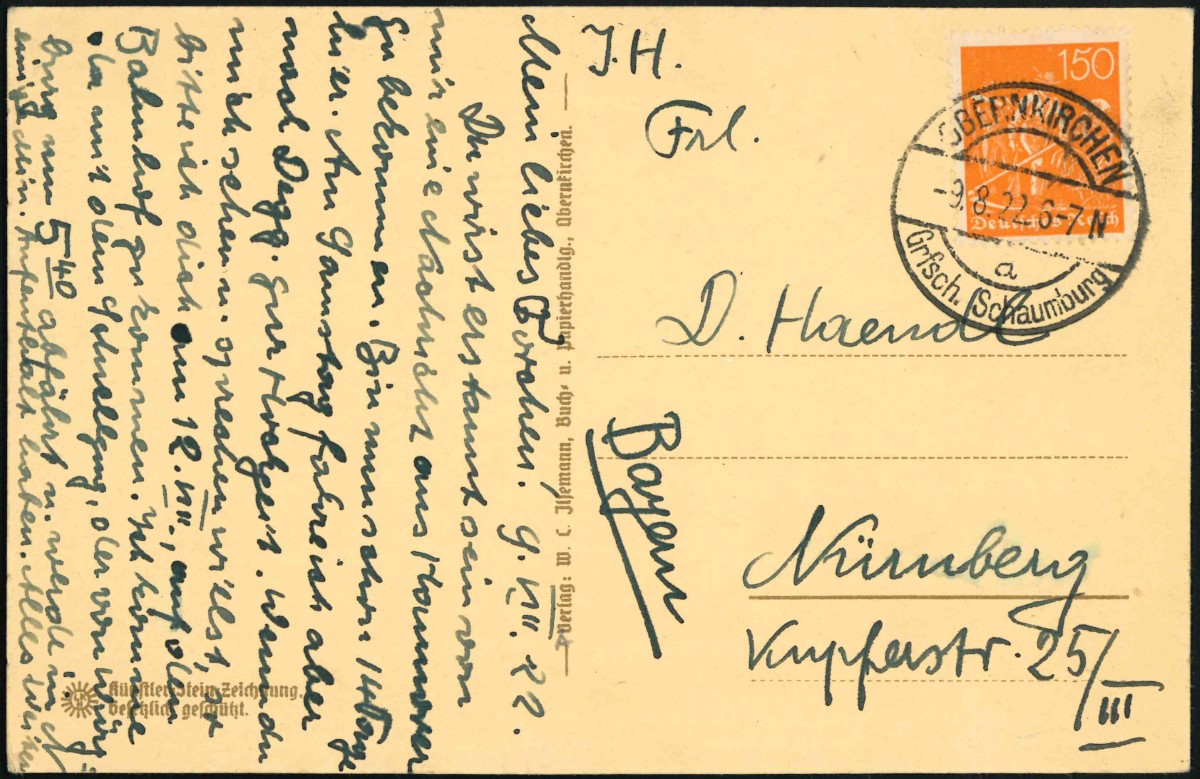PROPAGANDA POSTCARDS
(1911)
This page was last updated
04-Feb-2024 04:21

KÜNSTLER STEIN ZEICHNUNG
ARTIST STONE DRAWING
TOWNS and CITIES M to O
I don't know when this series of postcards was published, or how many cards were in the complete series, but I have placed them here as the earliest cancellation date I have seen is 1911. It is quite likely that these cards were issued in multiple batches over several years.
The cards seem to have been printed by a number of different publishers and are all unnumbered, so I have categorised them below by city as follows:
A to C
D to F
G to I
J to L
M to O
P to R
S to U
V to X
Y to Z

MERSEBURG
VERLAG REICHSBUND DEUTSCHER PAPIER u. SCHREIBWARENHÄNDLER
ORTSGRUPPE MERSEBURG n. S.
1. MERSEBURG - SCHLOSS u. SCHLOSSBRÜCKE
The first postcard below is inscribed "Merseburg | Schloss u. Schlossbrücke" - 'Merseburg Castle and Castle Bridge'.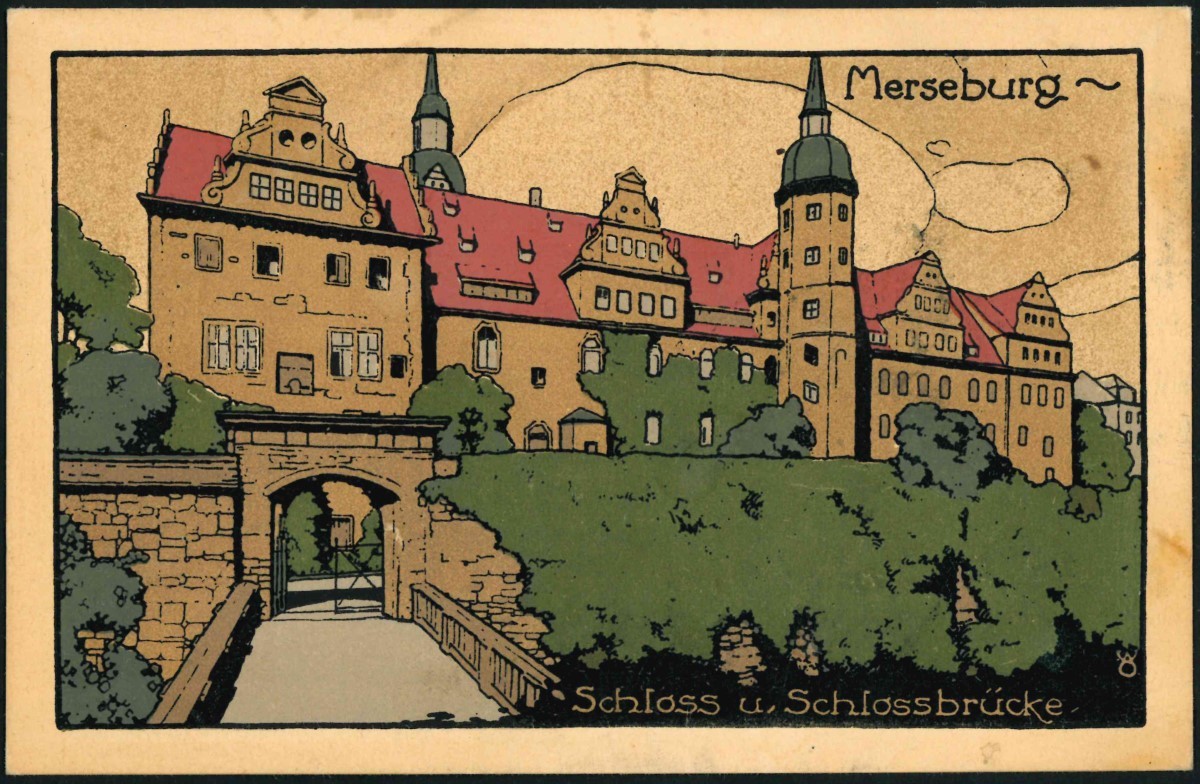
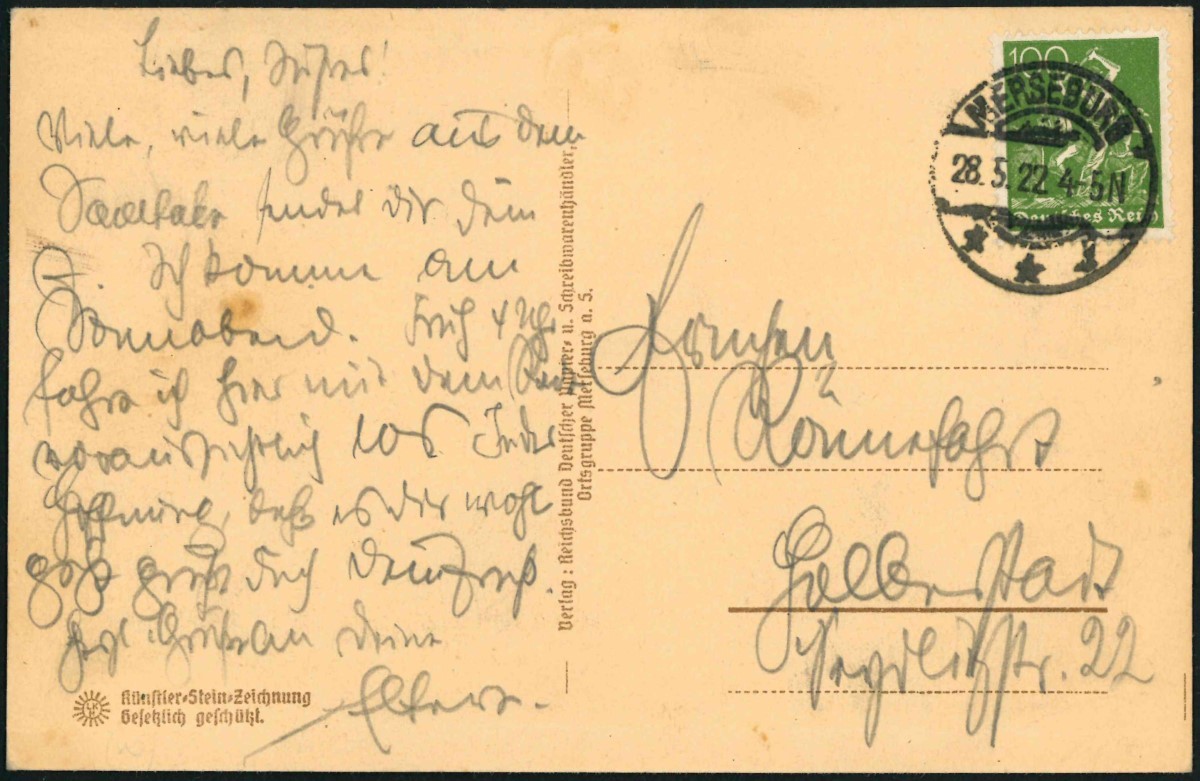


NURNBERG
FRIEDR RIEGEL, KUNSTVERLAGSANSTALT, NÜRNBERG
No. 1 - NÜRNBERG: BURG, GÜDSEITE
The first card is titled "NÜRNBERG: BURG, GÜDSEITE". The card features a panormaic view of the south side of Nürnberg Castle. This example was postally used in Nürnburg on 23rd Aug 1922 and was a local delivery. The self-adhesive stamp seen on this example is a 1922 Michel 189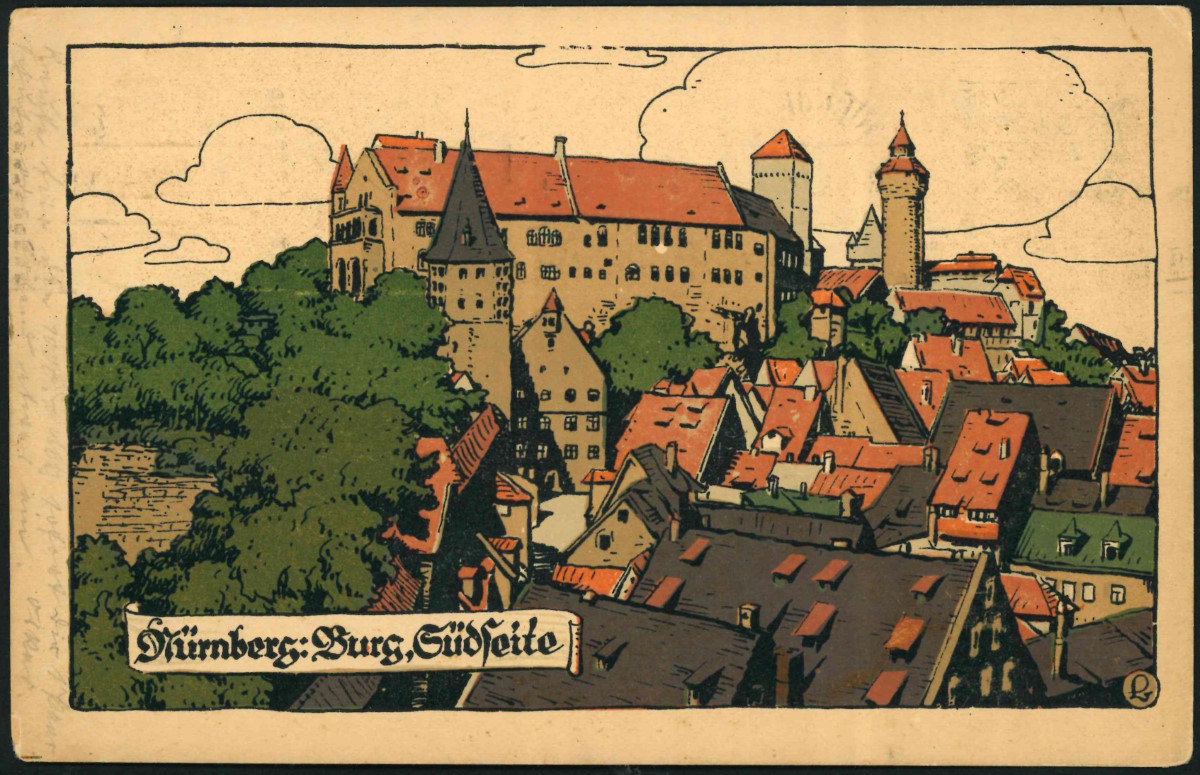
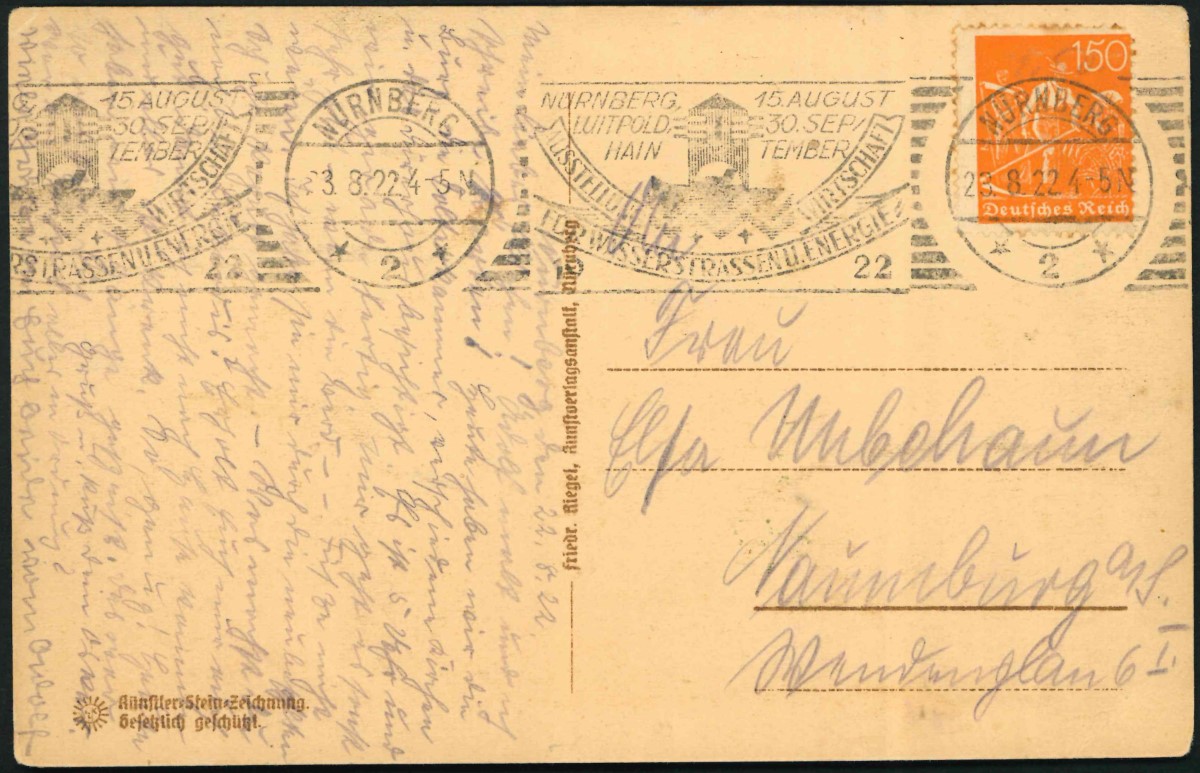

The following example has the same "NÜRNBERG: BURG, GÜDSEITE", title but is now in portrait mode. This example was postally used in Nürnberg on 14th Oct 1924 and features a 5Rpf Imperial Eagle, Michel 356 self-adhesive stamp.
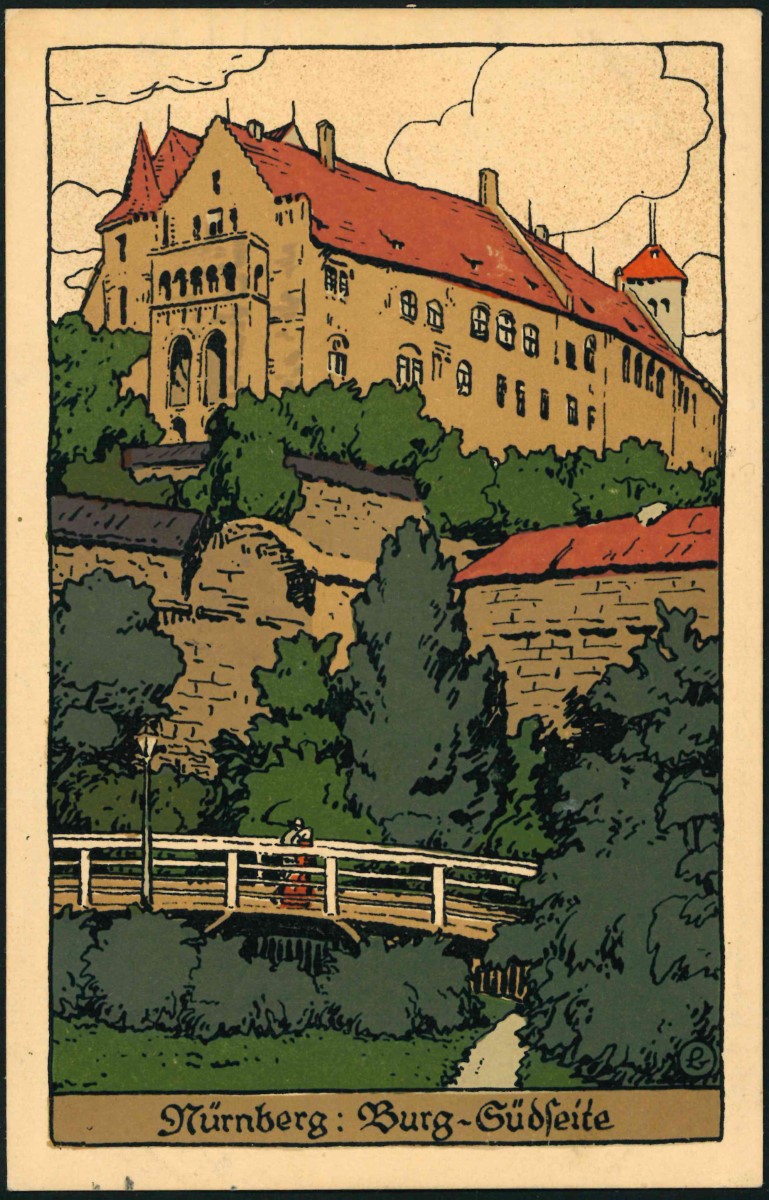
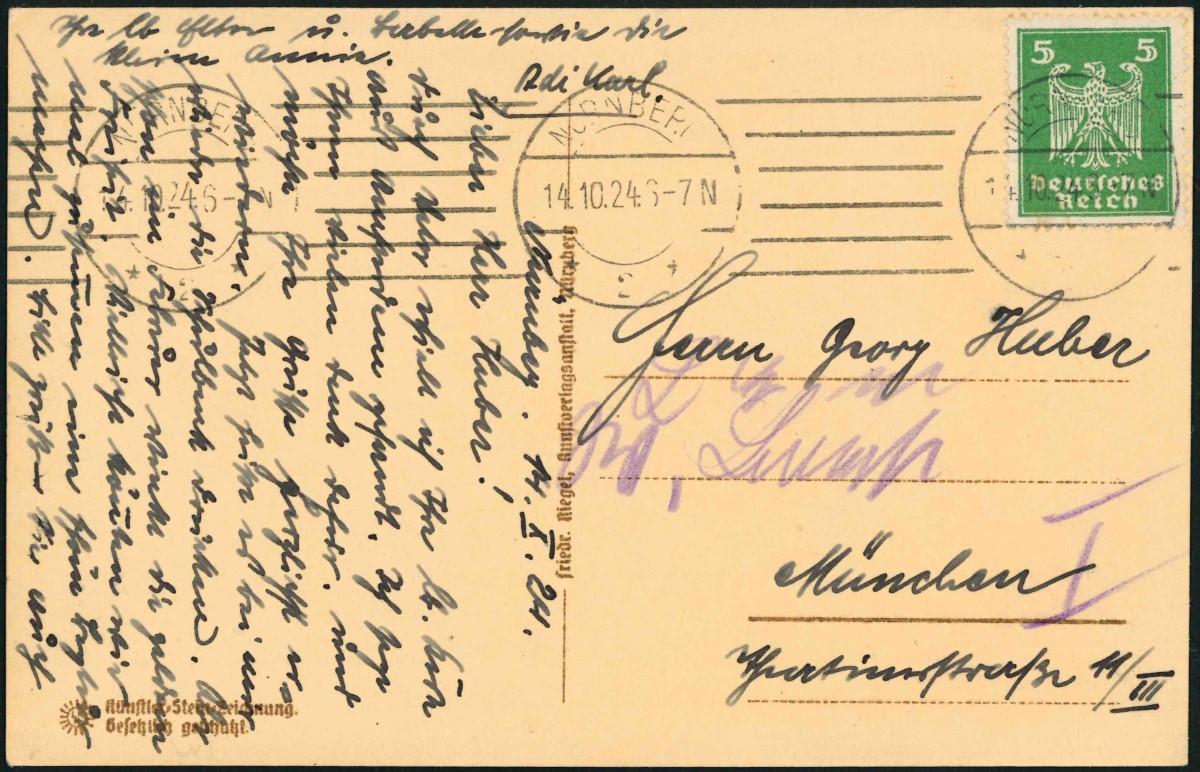


No. 2 - NÜRNBERG: NASSAUER HAUS
The second card is titled "NÜRNBERG: NASSAUER HAUS" and depicts the Nassauer Haus or Schlüsselfeldersche Stiftungshaus in Nürnberg, a medieval residential tower made of red castle sandstone. Although originally built in the Romanesque style, the house still features Gothic style elements after a few renovations. It is the last remaining residential tower in Nürnberg.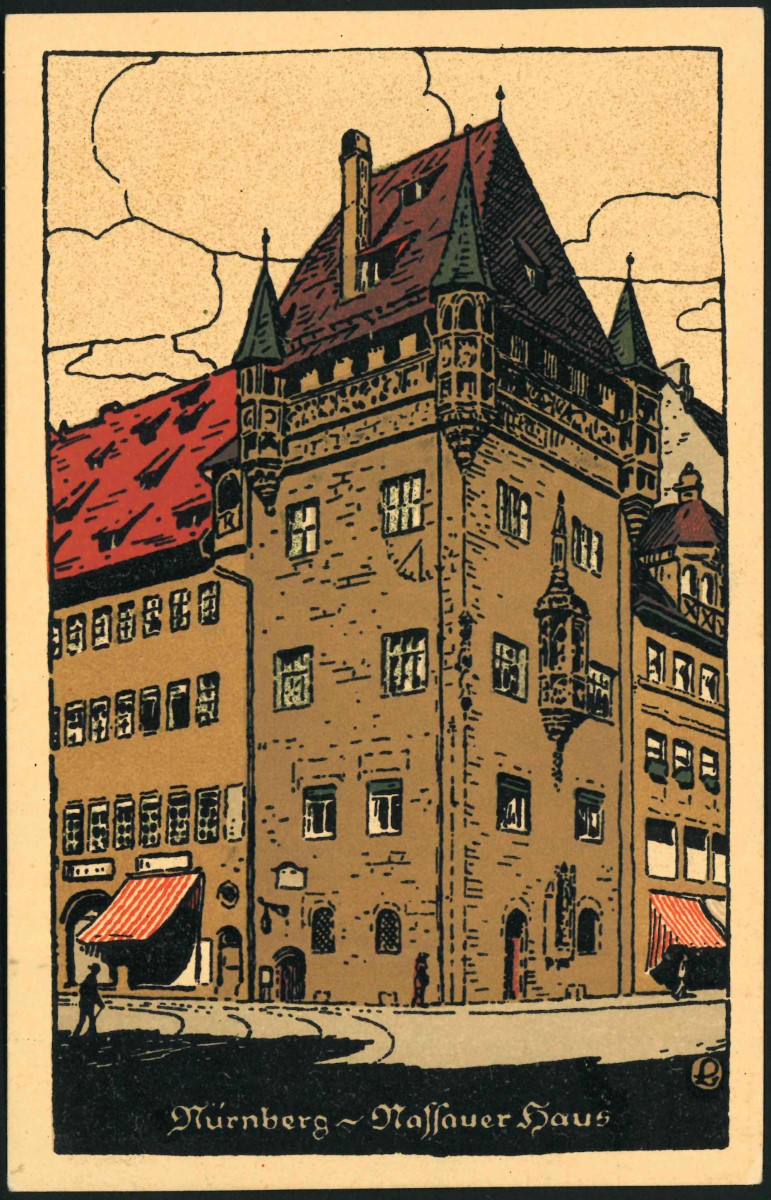
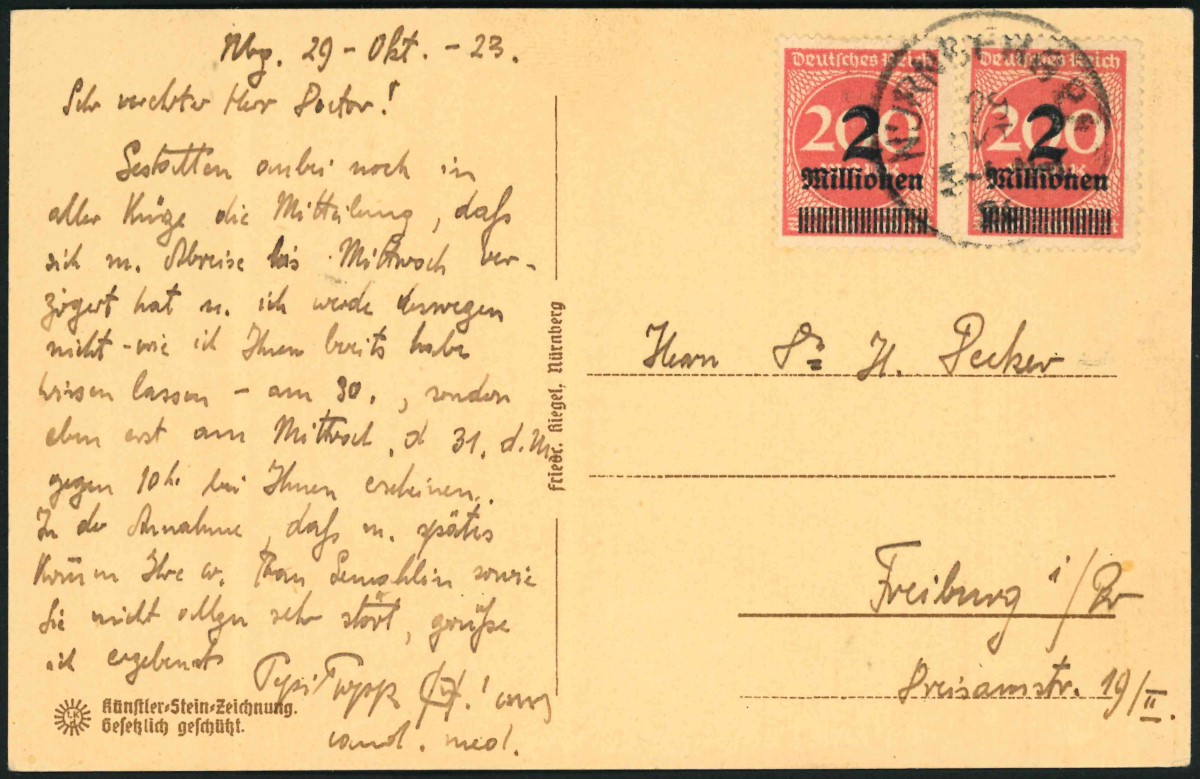

The postally used example above was cancelled in Nürnberg on 29th Oct 1923 and features two hyperinflation stamps for a total of 4 Million Marks. The stamps are both Michel 309 self-adhesive stamps

No. 3 - NÜRNBERG HENKERSTEG
The third card is titled "NÜRNBERG HENKERSTEG" and the image depicts The Henkersteg, also Langer Steg, a wooden footbridge over the Pegnitz River in Nürnberg.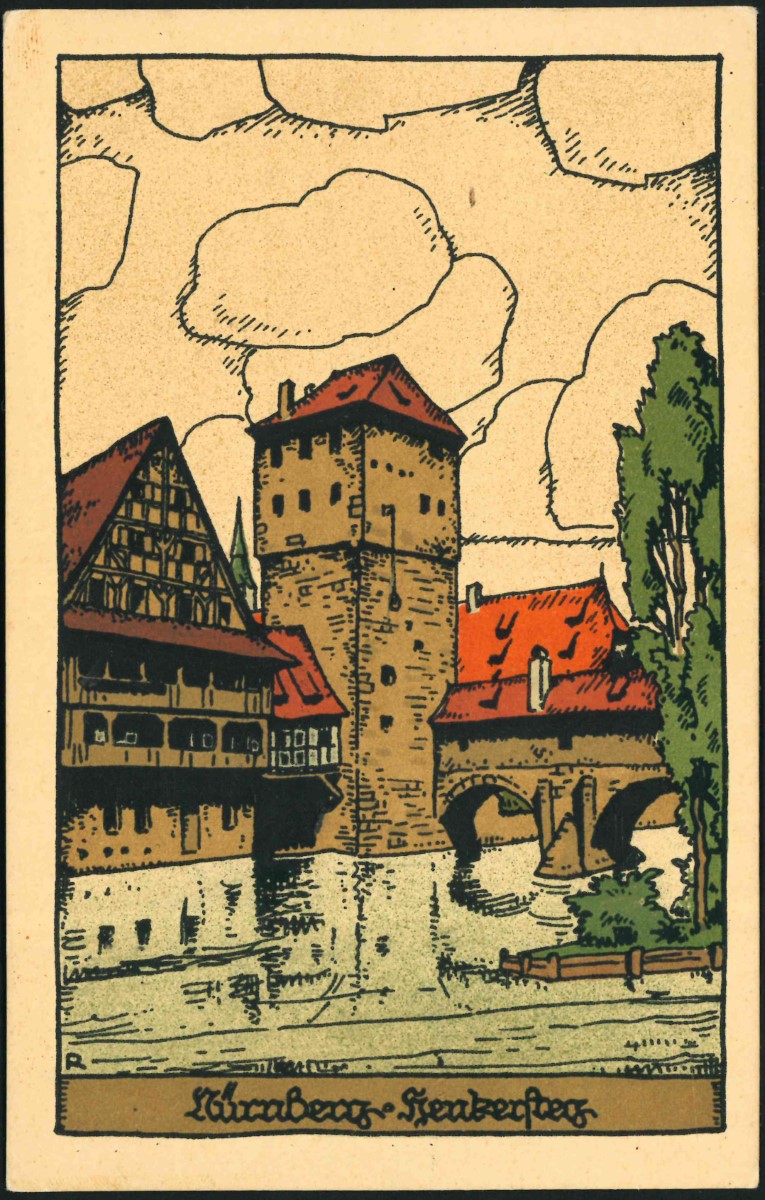
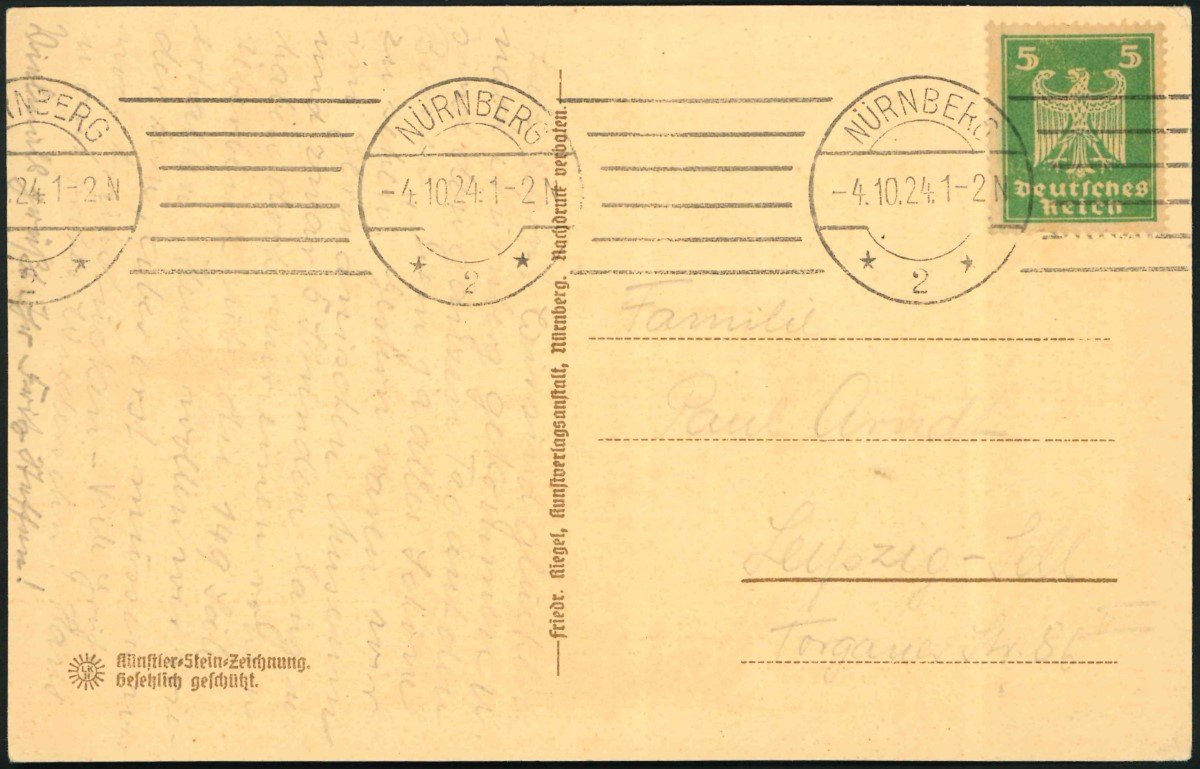

The example above was postally used in Nürnberg on 4th Oct 1924 and features a single 1924 issue Michel 356 5Rpf self-adhesive stamp

No. 4 - NÜRNBERG KAISERSTALLUNG UND FÜNFECKIGER TURM
The fourth card is titled "NÜRNBERG KAISERSTALLUNG UND FÜNFECKIGER TURM" and depicts the pentagonal tower of Nürnberg Castle.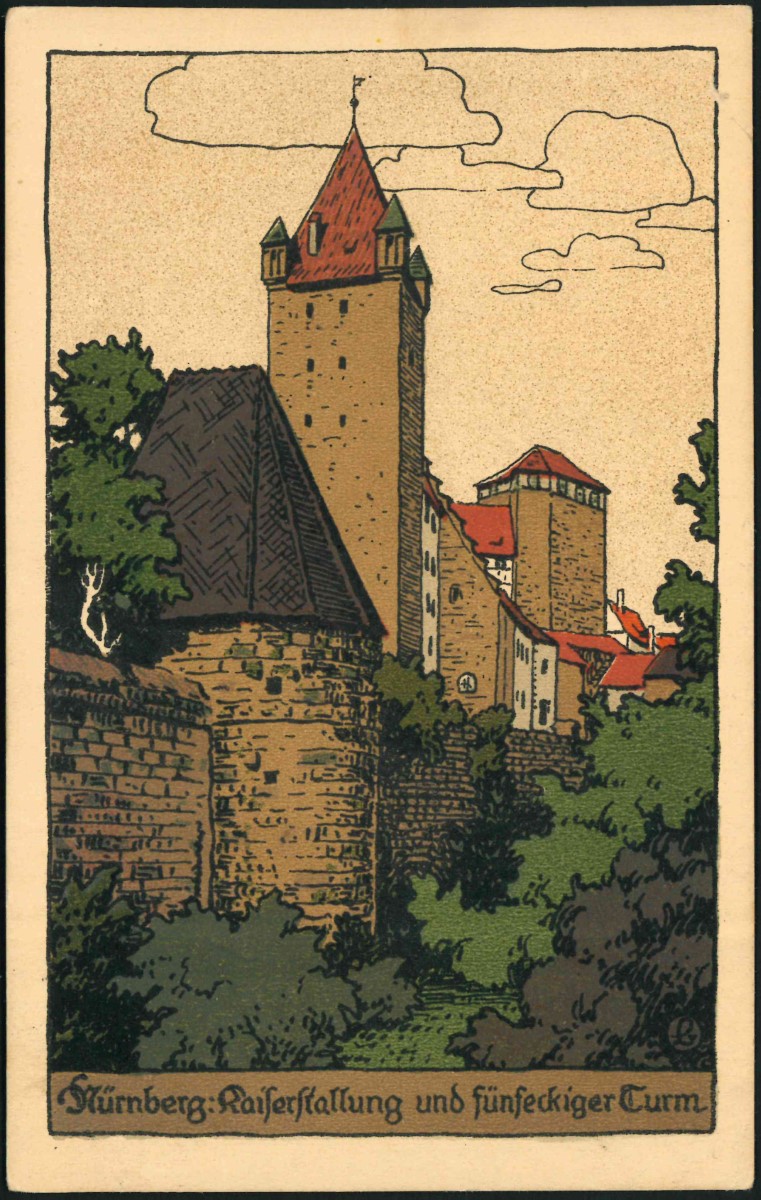
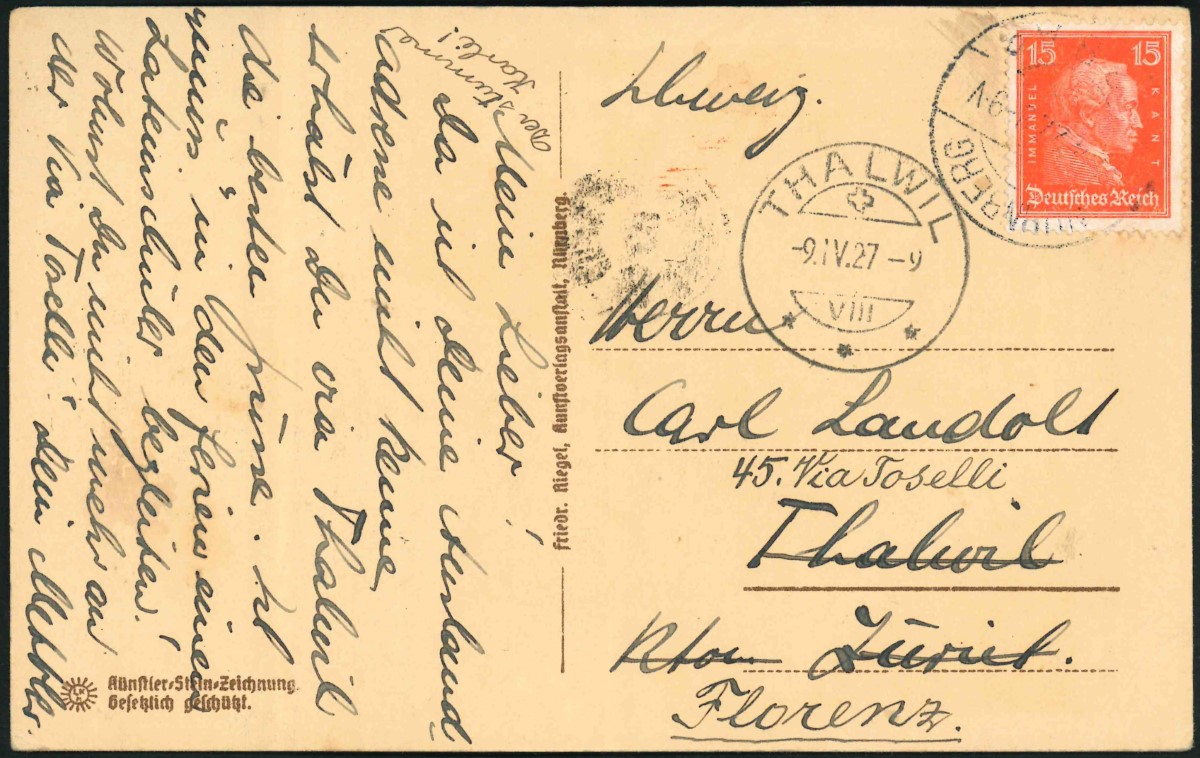

The foreign usage example above was postally used in Nürnberg in Jun 1927 and was sent to Florence in Italy. The card features a single 1926 issue Michel 391 15Rpf self-adhesive stamp.

No. 5 - NÜRNBERG BURG VORHOF
The fifth card is titled "Castle Outer Bailey" and depicts the outer walls and bailey of the Nürnberg Castle.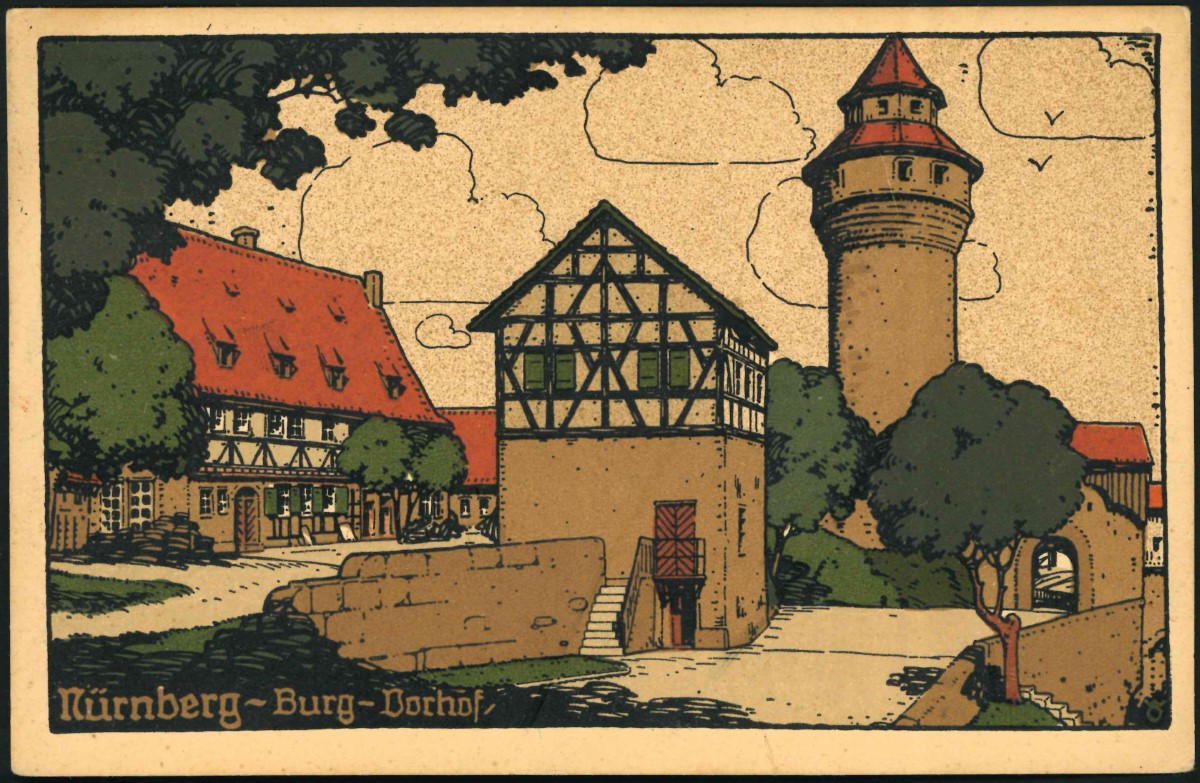
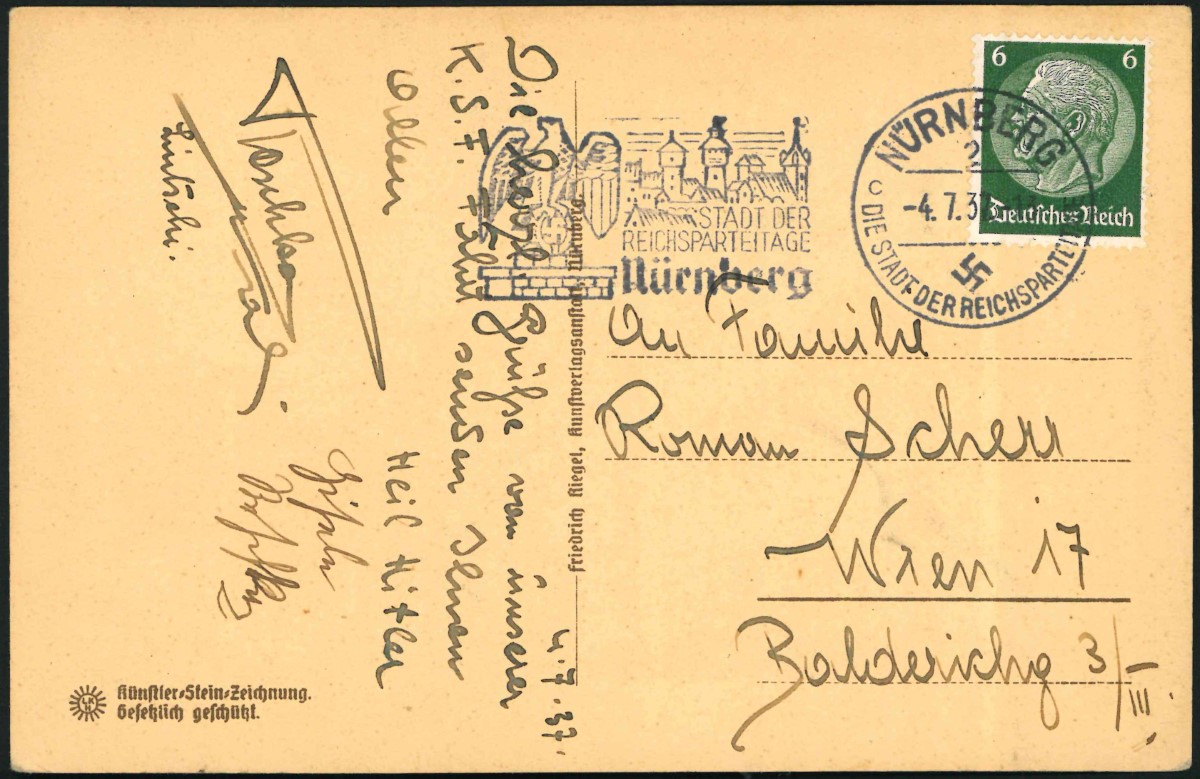

The postally used example above was used in Nürnberg on 4th Jul 1937 and was sent to Vienna in Austria. The card features a single 1933 issue Michel 516 6Rpf self-adhesive stamp. The card also features the special cancellation used at the 1937 Reichspartei Rally.

No. 6 - NÜRNBERG BRATWURSTGLÖCKLEIN
The sixth card is titled "The Bratwurst Bells". The Bratwurstglöcklein was once the most legendary bratwurst kitchen in Nuremberg and was known far beyond the city limits. The name still exists today as a restaurant, but the original inn no longer exists.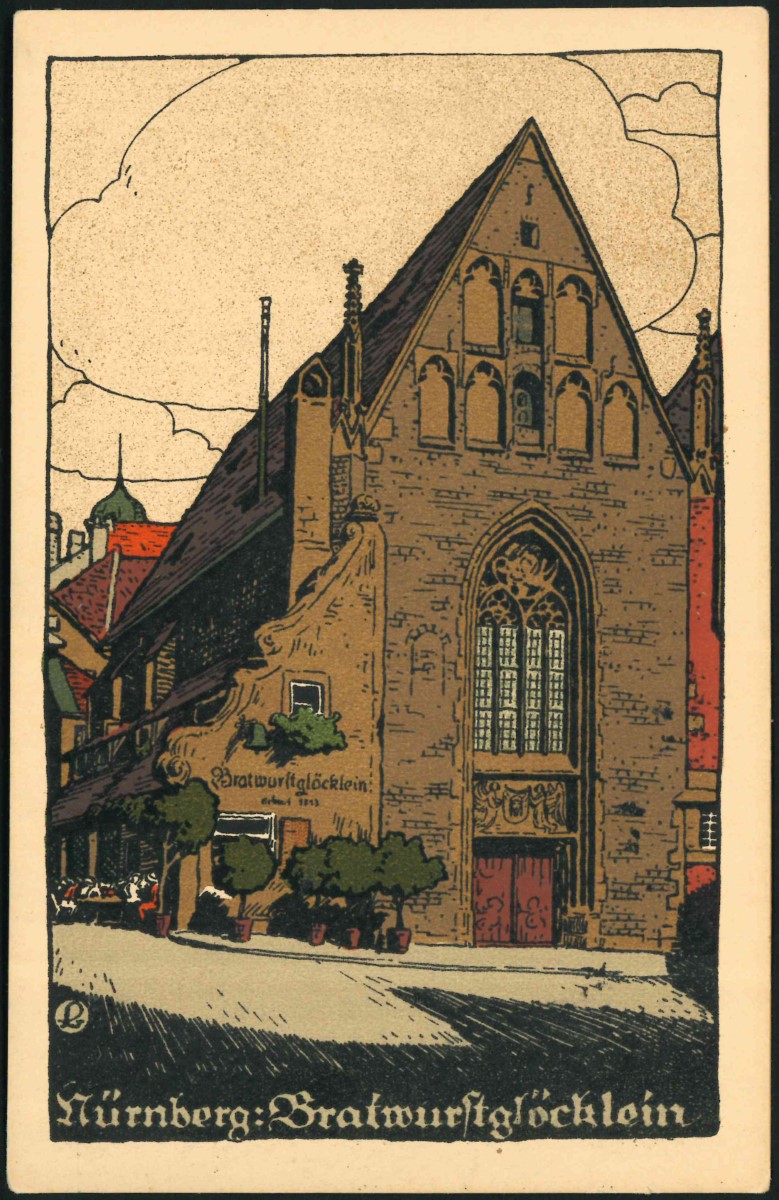
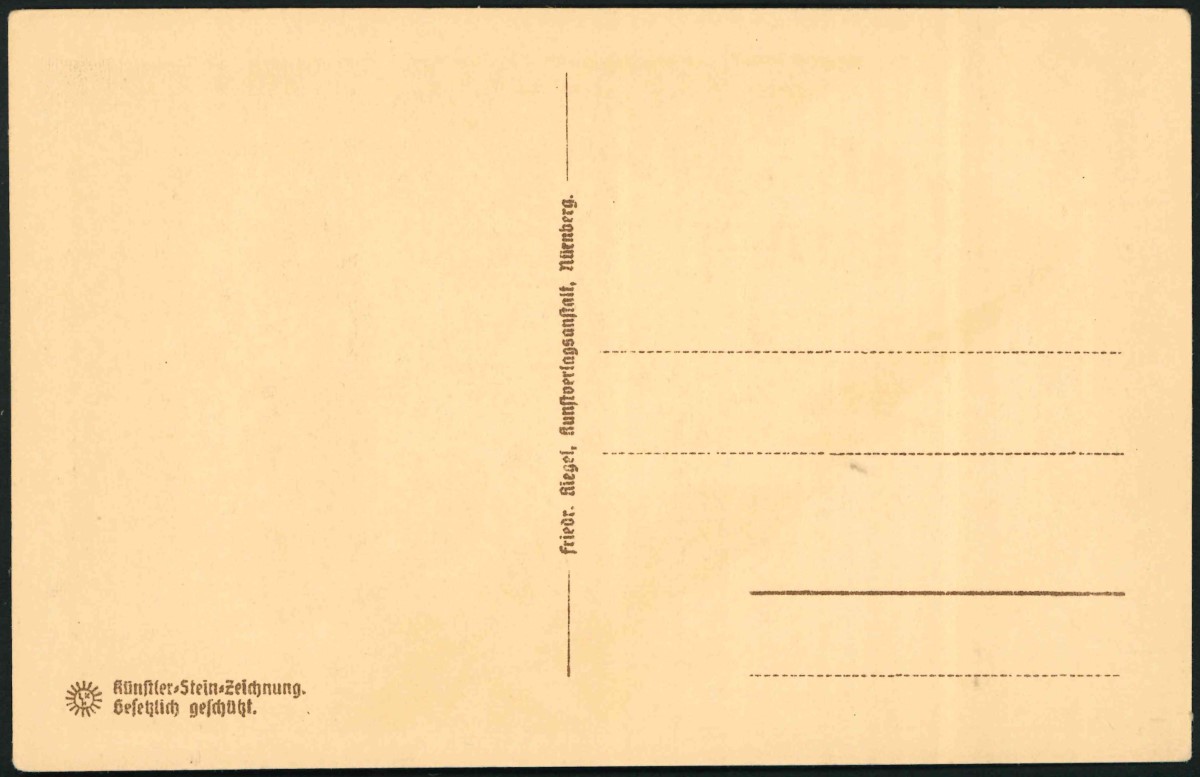


No. 7 - NÜRNBERG HANS SACHS HAUS
The seventh card depicts the house of Hans Sachs (5th Nov 1494 - 19th Jan 1576) a German shoemaker, poet, master singer and playwright who was born in the city of Nürnberg.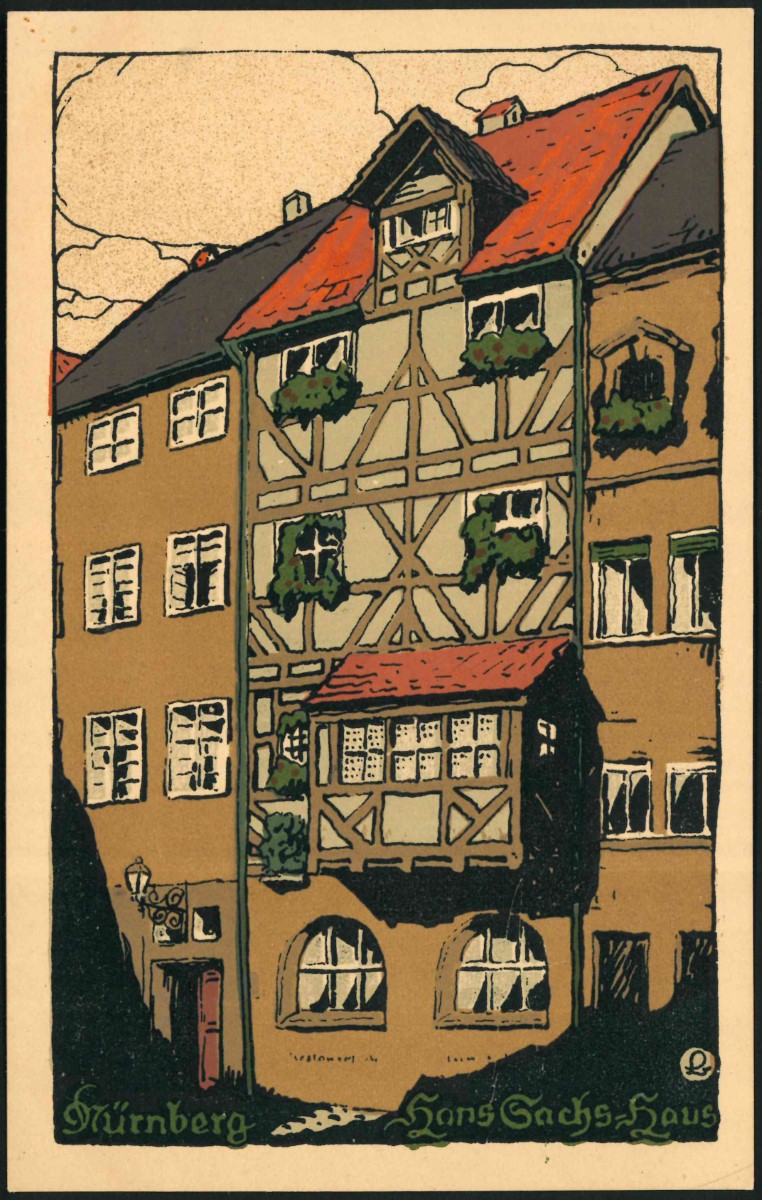
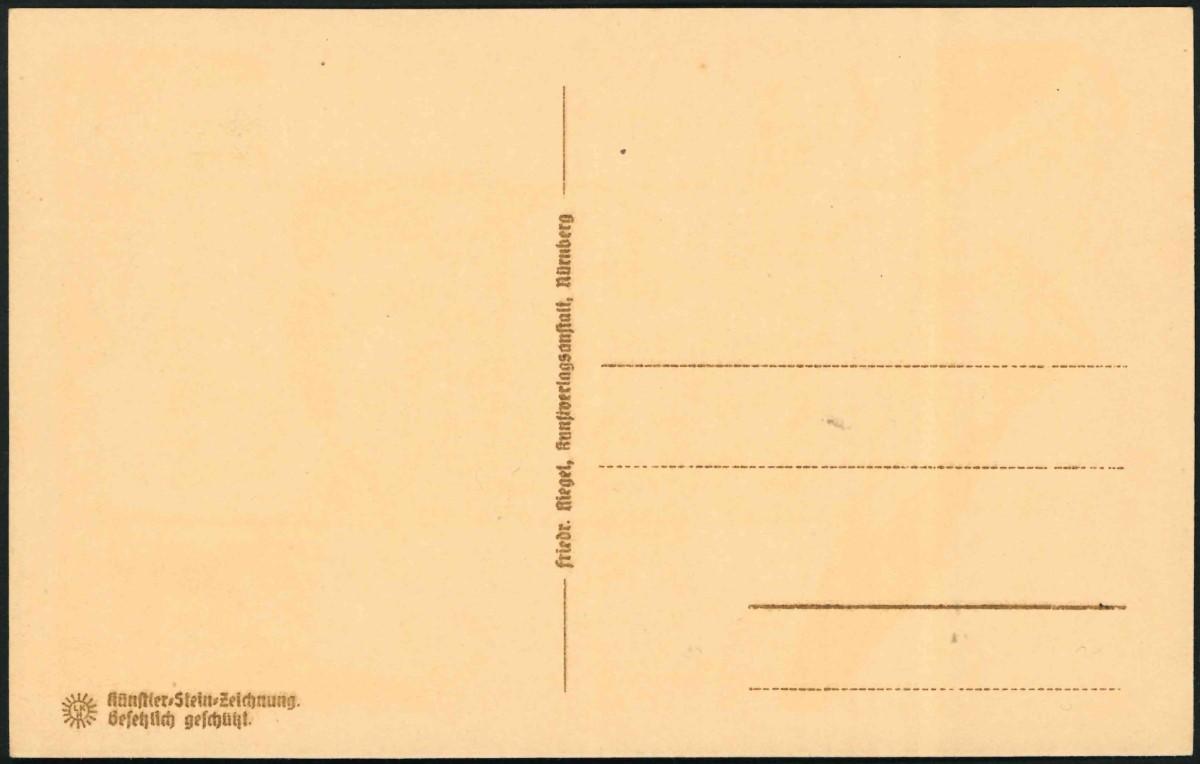


No. 8 - NÜRNBERG SCHÖNER ERKER
The eighth card depicts the "Schöner Erker" or 'Beautiful bay window' which is located at the Sebalder rectory. The original etching was by Paul Geissler in 1899.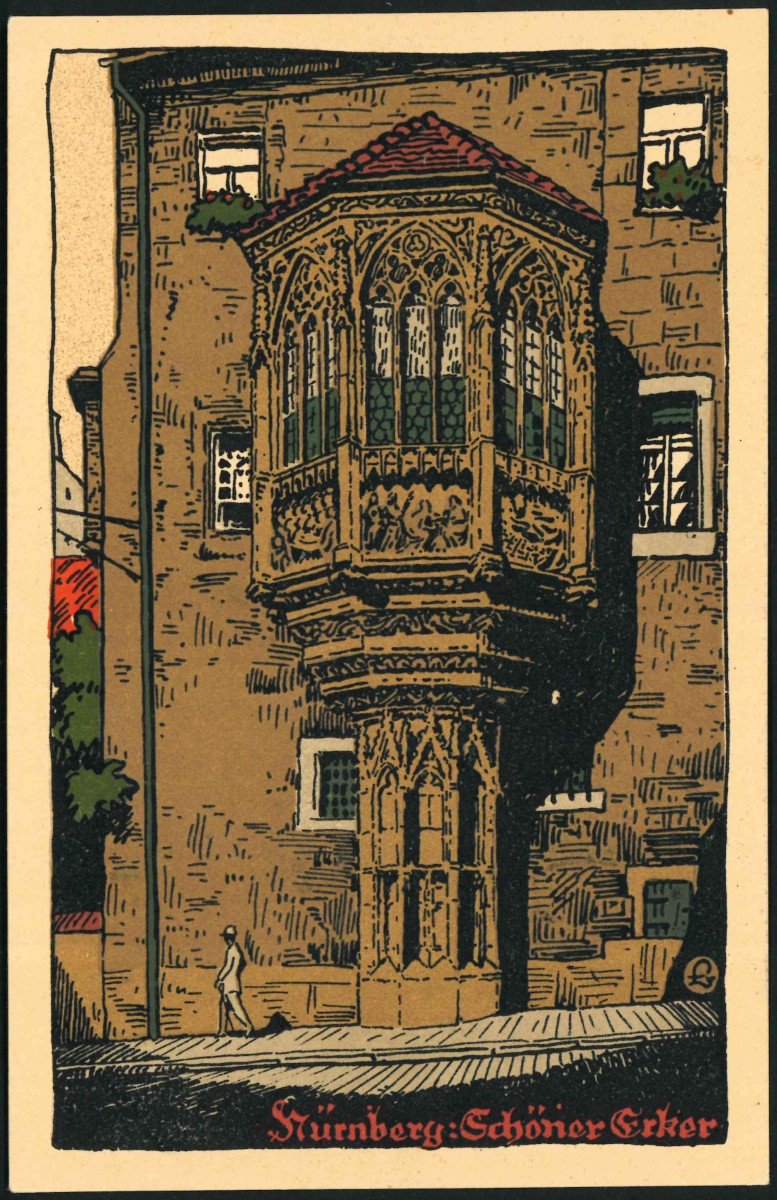
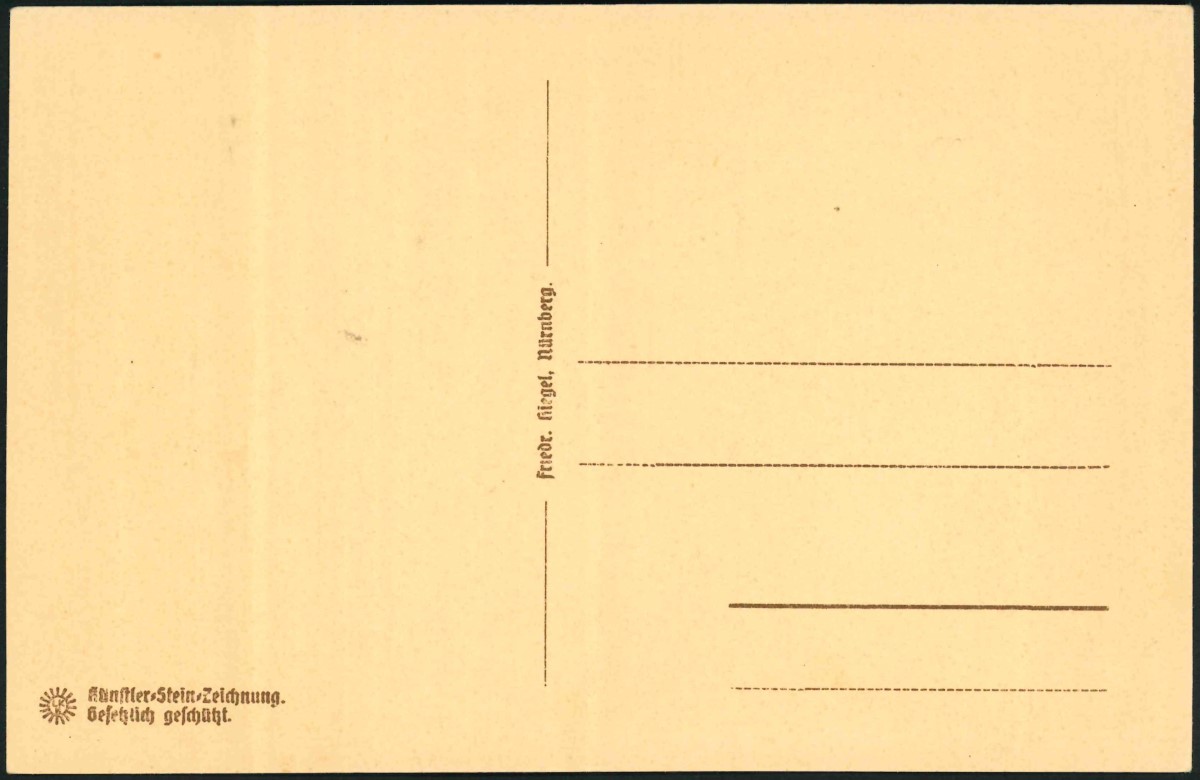


No. 9 - NÜRNBERG HEILIGGEIST - SPITAL
The following card features the Holy Spirit Hospital (poor house) in Nürnberg which is located on a bridge over the Pegnitz River. Construction of the 200 inmate building began on 10th Nov 1332 and was completed somewhere around 1339. For more information you can visit Holy Spirit Hospital Restaurant and wine bar which is the present day occupier of part of the building.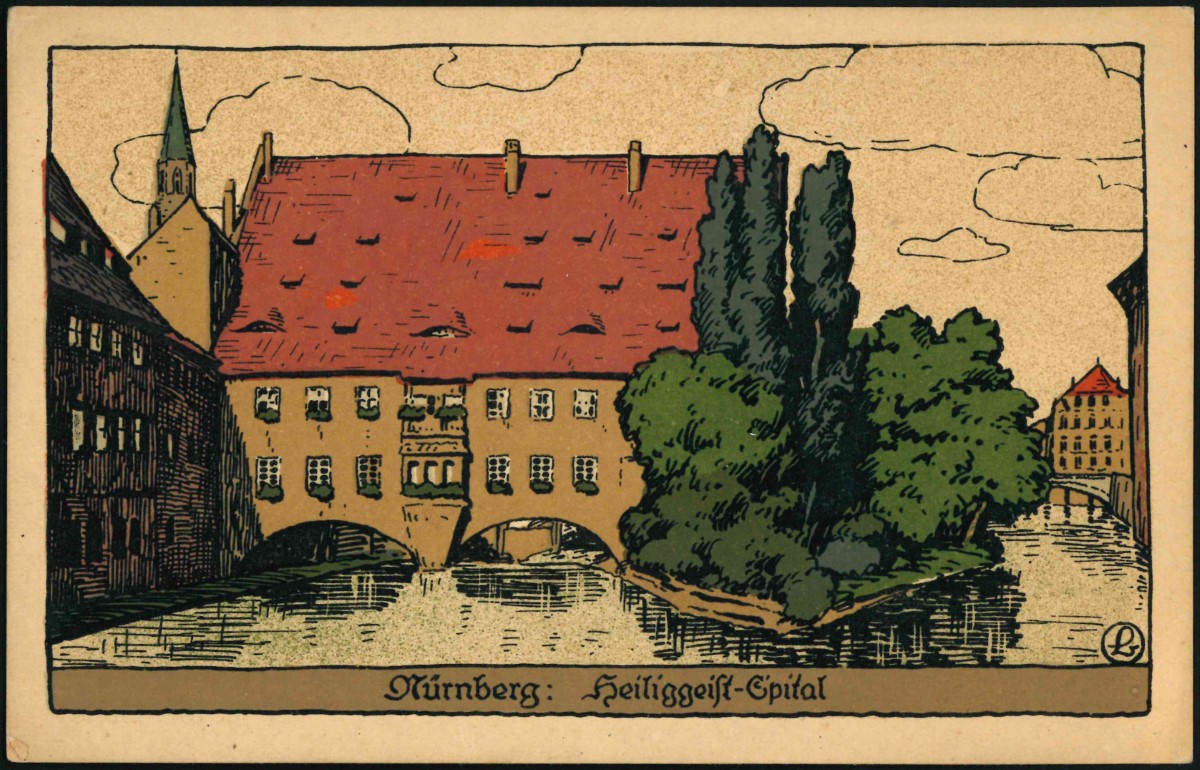
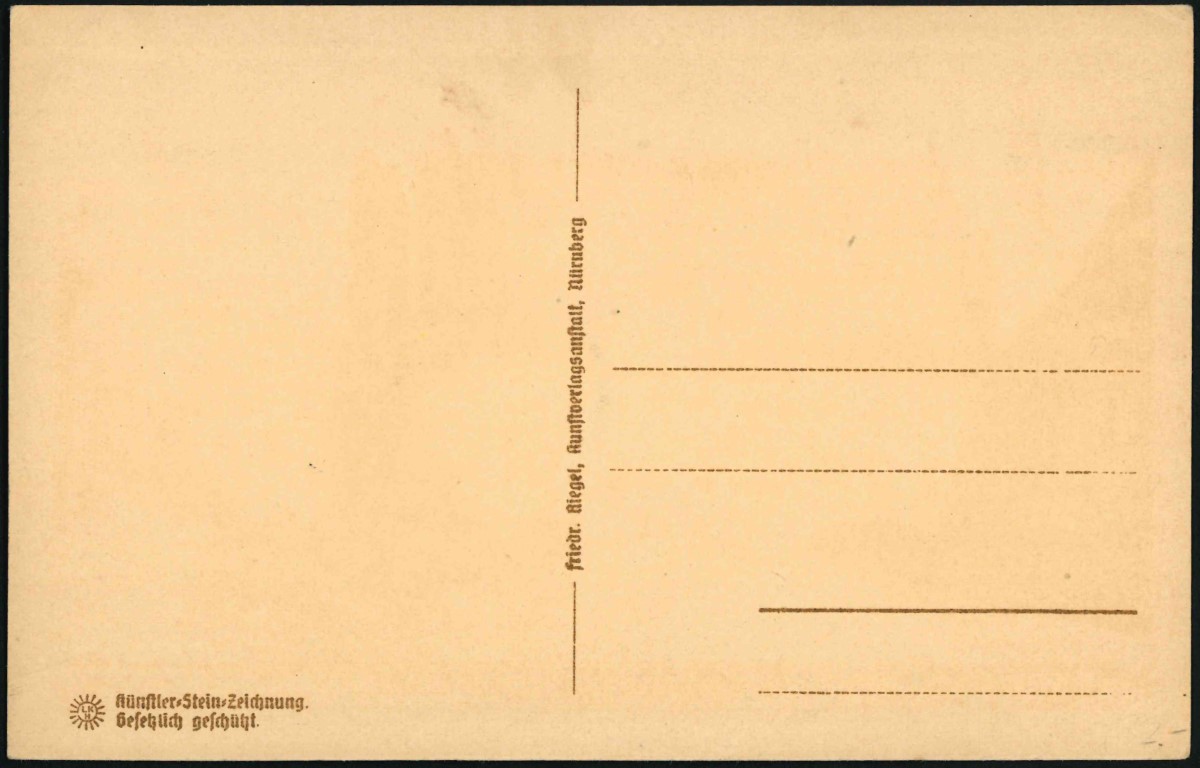


ELDONITA de E.A.A
No. 10 - XVa UNIVERSALA KONGRESO | de ESPERANTO. | NÜRNBERG
15th UNIVERSAL CONGRESS | from ESPERANTO. | NUREMBERG
This postcard features an image of Nürnberg Castle and commemorates the 15th Universal Congress of Esperanto held in NÜRNBERG. The purpose of the conference was to promote the use of Esperanto as a universal language. The man behind the language was a Polish oculist L. L. Zamenhof, who articulated the language around 1887 with the intention of turning it into a universal second language for international communication. Following the First World War, Esperanto saw a new dawn, with serious efforts being taken to make it the official language of the League of Nations, however the effort was vetoed by France.
An almost identical version of this card was published by Friedr Riegel, Kunstverlagsanstalt, NÜRNBERG
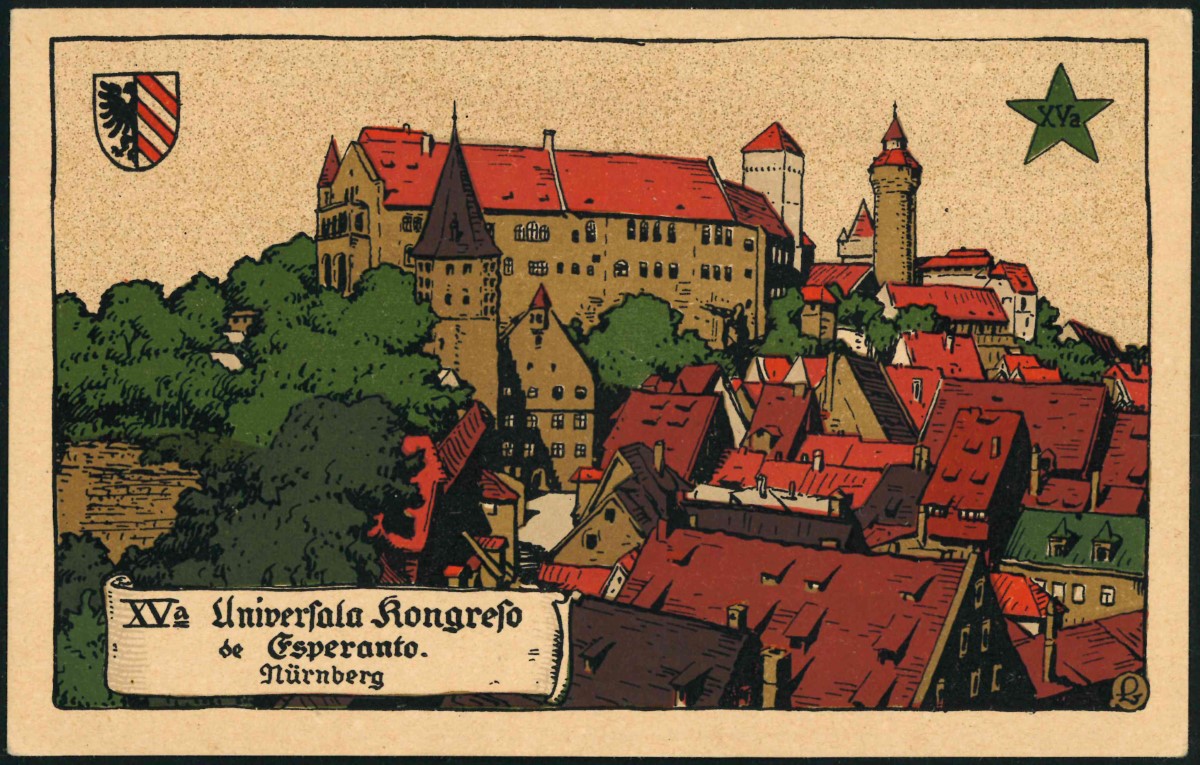
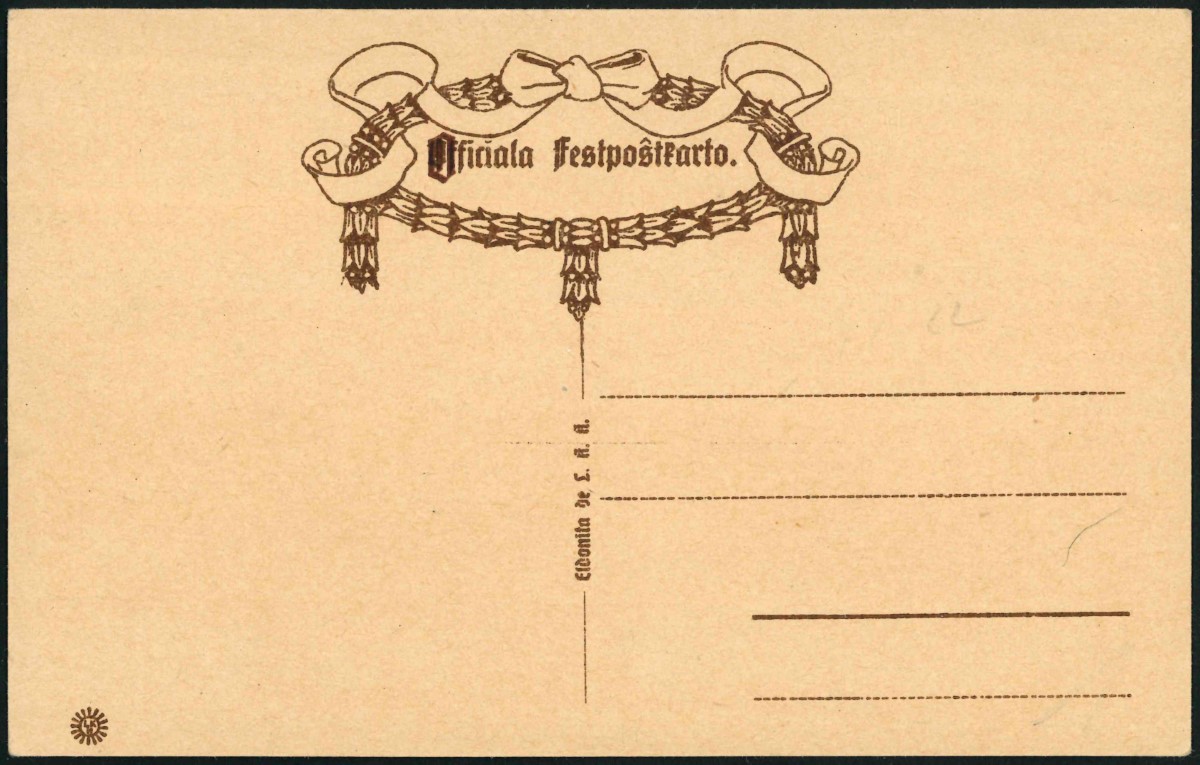


No.11 - NÜRNBERG: HENKERSTEG
This card is titled "NÜRNBERG: HENKERSTEG". There is anoter postcard, this time produced by FRIEDR RIEGEL, KUNSTVERLAGSANSTALT of NÜRNBERG, which also depicts the Henkersteg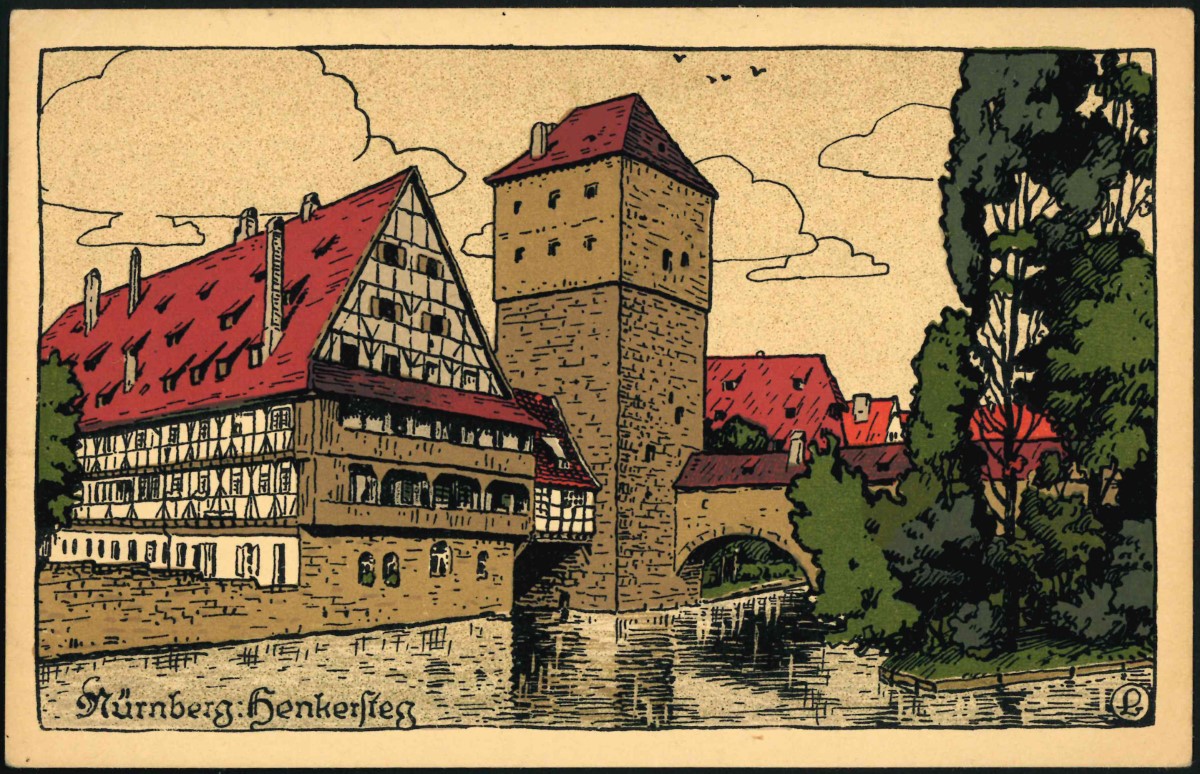
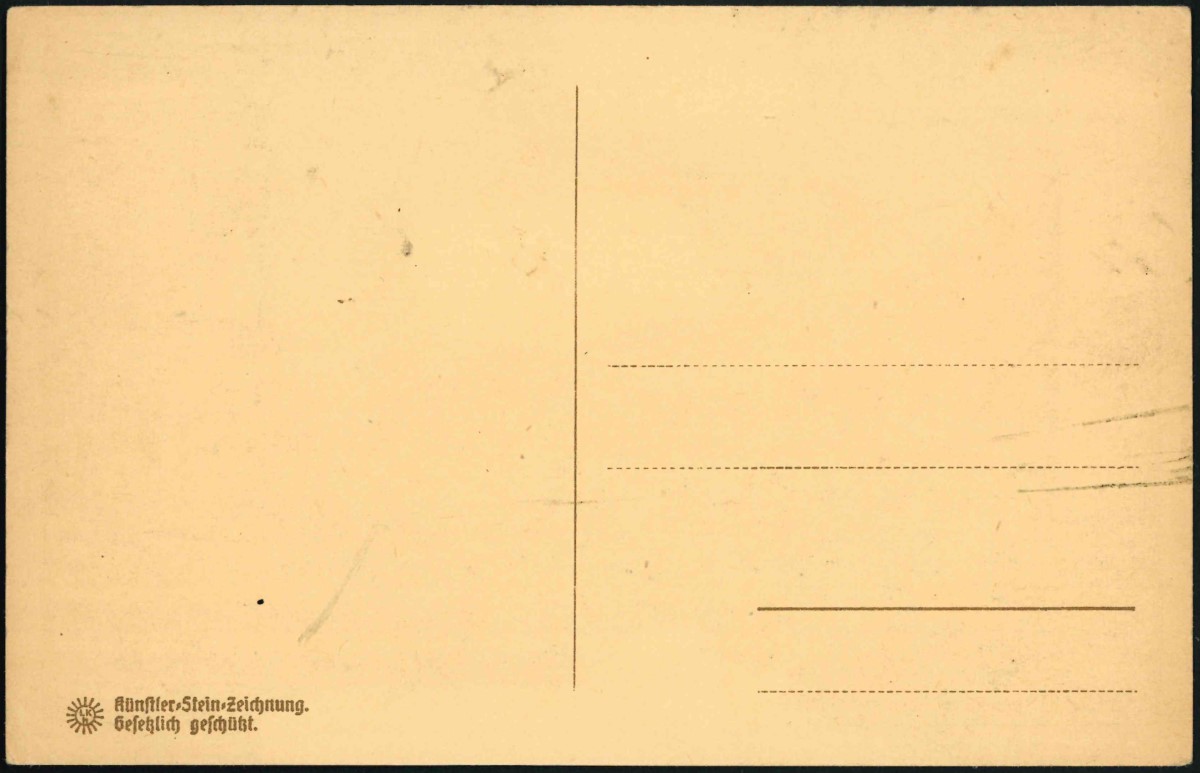


NEUÖTTING
ALLEINVERLAG GUSTAV OIL BUCH, U. PAPIERHANDLUNG, NEUÖTTING
1. NEUÖTTING, INN LANDSHUTER TOR, URKUNDLICH SCHON 123
The first postcard below is inscribed "Neuötting, Inn Landshuter Tor, Urkundlich Schon 123" - 'Neuötting, Inn Landshuter Gate, Already 123 O'Wolznt'.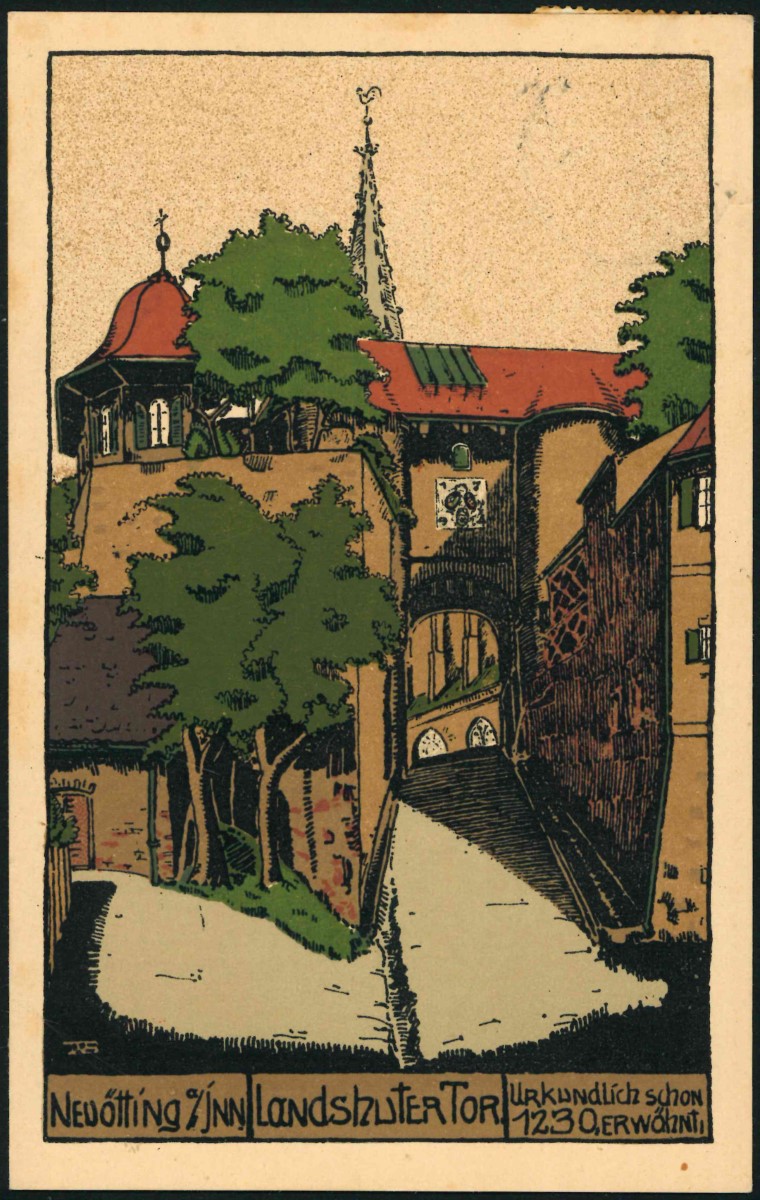
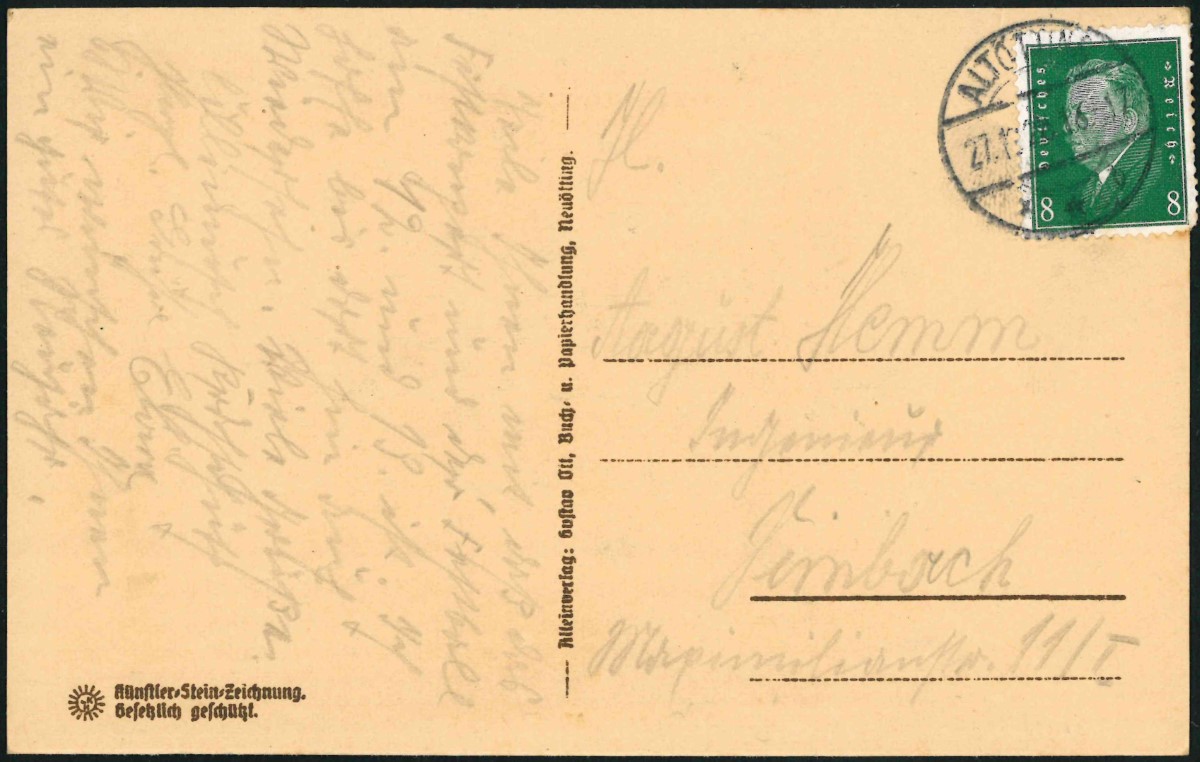


OBERNKIRCHEN
VERLAG W.C. ILSEMANN, BUCH u. PAPIERHANDLG, OBERNKIRCHEN
1. OBERNKIRCHEN - AM MARKT
The first postcard below is inscribed "Obernkirchen - Am Markt', the Market Square in the town of Obernkirchen, a mountain town in the Schaumburg district in Lower Saxony. The example below was posted in OBERNKIRCHEN on 9th Aug 1922 and was destined for an address in NÜRNBURG.